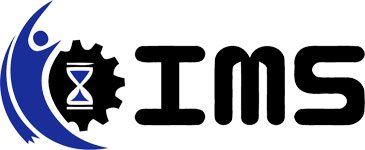Safeguarding Your Manufacturing Business During a Recession
Recessions can mean lower customer demand, higher operating costs, and uncertainty surrounding the future. Studies show that recessions occur on average every 6.5 years. This means if you have been in business for nearly a decade, you’ve probably faced a recession or two.
Maintaining your financial health and growing your manufacturing business amid a recession takes a conscious effort. In this article, we’ll cover different strategies you can implement to safeguard your manufacturing business during a recession.
Establish Internal Benchmarks
How can your team know what they are working toward without defined benchmarks? You should set clear goals for your organization, such as reaching a specific revenue mark or reducing costs by a certain percentage.
When everyone on your team knows what they are working toward, you are more likely to reach your goals. It can help to incentivize the process. For example, maybe you offer a bonus if your sales team reaches their internal benchmark.
Create a Budget
Budgets are essential during recessionary times. Most manufacturing businesses like to lean out during tough economic times. You will have little insight into where you can lean out without concrete information surrounding expected and actual operating results.
Zero-based budgets tend to work best while recessions are occurring. In this budgeting style, all expenses must be justified for the upcoming period. You don’t create your budget based on historical information, but instead, focus on the money needed to support operations during the next month.
Monitor Supply Chain Impacts
The supply chain is usually impacted by recessions. From shipping delays and material shortages to increasing prices, your manufacturing business can experience a plethora of supply chain impacts. It’s best to take a proactive approach to supply chain management.
This includes having backup suppliers and vendors that you can turn to when you can’t get raw materials in or working with multiple freight agencies to distribute your products. You want to be agile and flexible when facing supply chain disruptions.
Improve Working Capital
Cash is king during recessions. Manufacturing businesses should improve working capital when met with recessionary conditions. Your working capital is your current assets minus your current liabilities.
There are a few different ways you can improve this metric. The first is generating more profit. Maybe you decide to up your advertising budget or follow a zero-based budget. Another option is to take on long-term debt, like an installment loan. This can bolster your cash account, while deferring repayment until economic conditions return to normal.
Upgrade Inefficient Equipment
Analyzing your efficiency is another strategy to safeguard your manufacturing business during a recession. Is your equipment working at full capacity? Does purchasing a new piece of equipment give you the opportunity to make more sales?
These are questions you need to consider. Remember that you don’t always need to purchase new equipment. In fact, used equipment can give you access to important machinery without having to foot a high bill.
About IMS Supply: IMS Supply is a leading distributor of maintenance, repair and operations (MRO) products and services with facilities in East and West Michigan and Kentucky. Through our MRO Asset Recovery Program we stock hard to find parts and supplies from thousands of different manufacturers at prices up to 70% less than MSRP. Contact us today to find out how we can help your business.



